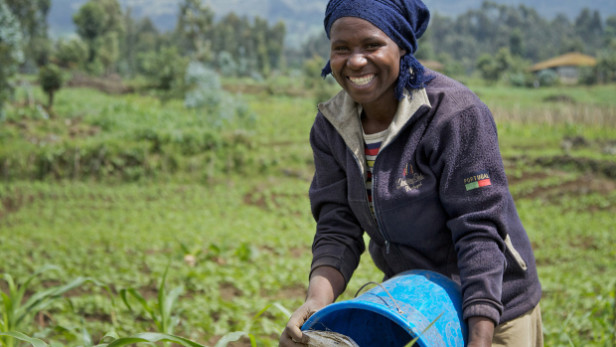Partnering with churches makes sense because it's an effective strategy for community development. That, and because I also believe in a God who want to use his church/people to be agents of transformation in our world. I believe in a God of mercy who loves justice and whose heart is broken by the plight of the poor and the suffering in our world. A God who entered into our suffering to redeem his broken creation through his Son Jesus Christ. A God who invites his followers to be his hands and feet and join in redeeming this broken world. That's a powerful reason to believe in the church as an essential element in community development. But I want to focus on why it makes sense to do community development through the local church from a practical perspective. Something we can all relate to regardless of faith or worldview.
Community development is most effective when it comes alongside people who are already trying to help themselves. It's empowering people who already have a vision and maybe even a plan and helping them achieve their goals. Sometimes a community might form a committee to address a particular issue. Like a community based orphan care center to give orphans an early childhood education and provide some respite for their extended family caregivers. Often churches are behind such community based initiatives. The local church is usually in a position of respect and influence. The church is aware of the needs in its community and it has a mandate to care for the poor, the widows, the orphans, and the suffering. As an outsider it takes a lot of work to discover the story of a community -- who's who, the history of certain problems, what's been done, what's available, etc. That's why it makes sense to partner with a local influential organization that wants so see its community flourish.
This model for community development is what's exciting about the work we will be doing with Emmanuel International in Tanzania. Tearfund is an organization that has championed this model of community development and summarizes it as follows:
"Church and community mobilisation involves mobilising a local church to act as a facilitator in mobilising the whole community to address their own needs.
This approach is different from the ‘church mobilisation’ approach because, once the local church is mobilised, it becomes a facilitator rather than the provider. The local church seeks to envision and empower community members to identify and respond to their own needs, rather than meeting those needs for them. The local church therefore works with rather than for the community. The community is in control. The local church can provide ongoing support to the community, and the community may call upon Christian organisations for technical support where necessary." - tilz.tearfund.org
Umoja, which means ‘togetherness’ in the Swahili language of East Africa, is an exciting and transformational church and community initiative. It helps church leaders and their congregations work together with the local community to bring about positive change for the whole community.
Umoja helps local churches and communities build on the resources and skills they already have. It is a process that inspires and equips local people with a vision for determining their own future with their own resources." - tearfund.org



